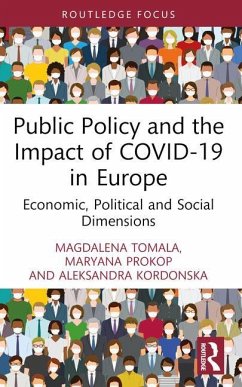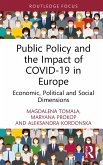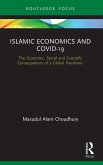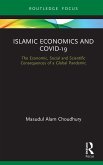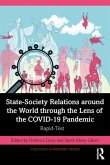This book analyses Europe's COVID-19 response provided by governments and societies, to assess its influence on the economy from both a short- and long-term perspective.
The authors argue that there are three key factors that determine how successful a given country is. The first is the determination and effectiveness of the government. The second is the capacity of states and their healthcare systems in times of crisis. The third is society's willingness to adhere to emergency measures and to cooperate with authorities. The book examines the government policy of EU states during the pandemic; studies the behaviour of EU societies; reveals the influence of the pandemic crisis on the economy of EU states and formulates a successful strategy to counteract the challenges wrought by the pandemic.
The book will appeal to scholars and researchers engaged in the fields of economic and political science, global studies and international relations. Furthermore, it will also be addressed to policy makers of European States as it contains a complex analysis of their policy responses and the corresponding impact on European economy and society.
The authors argue that there are three key factors that determine how successful a given country is. The first is the determination and effectiveness of the government. The second is the capacity of states and their healthcare systems in times of crisis. The third is society's willingness to adhere to emergency measures and to cooperate with authorities. The book examines the government policy of EU states during the pandemic; studies the behaviour of EU societies; reveals the influence of the pandemic crisis on the economy of EU states and formulates a successful strategy to counteract the challenges wrought by the pandemic.
The book will appeal to scholars and researchers engaged in the fields of economic and political science, global studies and international relations. Furthermore, it will also be addressed to policy makers of European States as it contains a complex analysis of their policy responses and the corresponding impact on European economy and society.

